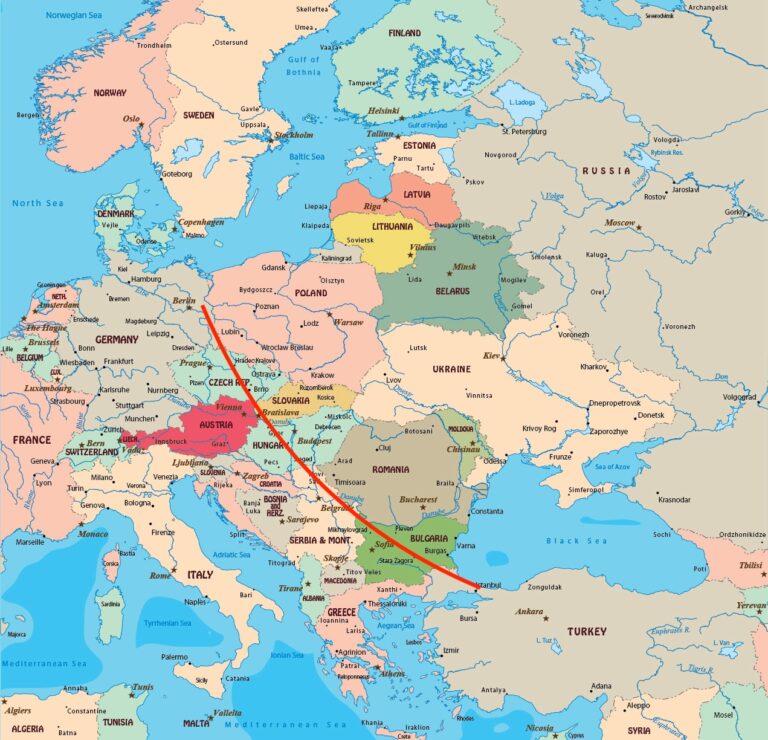- The UN-convened Net-Zero Export Credit Agencies Alliance will be the first net-zero finance alliance comprising public finance institutions
- The founding and affiliate members are geographically diverse and among the largest export credit agencies operating globally: combined they supported an estimated US$120 billion in global trade in 2022 alone.
- ECAs can address market gaps not covered by the private finance sector and play a significant role in both decarbonising trade and facilitating joint action from public and private finance.
At COP28 , eight leading export credit agencies, in partnership with the Innovation and Knowledge Hub at the University of Oxford, Future of Climate Cooperation, and the UN Environment Programme Finance Initiative (UNEP FI) launched the UN-convened Net-Zero Export Credit Agencies Alliance (NZECA), the first net-zero alliance comprising public finance institutions globally. In working to deliver net-zero economies by 2050, the NZECA will help decarbonise global trade and facilitate joint action from public and private finance.
The five founding members, together with the three affiliate members, come from geographically diverse regions including Europe, the Middle East, and North America, and are among the largest ECAs operating globally. Combined, these ECAs supported an estimated US$120 billion in global trade in 2022 alone, providing finance and other services such as insurance and guarantees to facilitate local companies’ international exports. The export credit industry is hugely influential globally, with up to $28 trillion – comprising 80 to 90 per cent – of international trade relying on export financing, much of it provided by governments via export credit agencies and export-import banks.
“Public finance has been the missing piece in the net-zero financial landscape,” said Inger Andersen, Executive Director of UNEP. “Export Credit Agencies are in a strong position to deliver more sustainable global trade and to complement the work already being undertaken by the private finance sector, helping to address market gaps to deliver net-zero economies by 2050. This Alliance will play an important role in supporting tangible economic transition and help countries implement their commitments under the Paris Agreement.”
Founding members include Svensk Exportkredit (SEK) and EKN from Sweden, the Export and Investment Fund of Denmark (EIFO), UK Export Finance, and Export Development Canada (EDC). They have today committed to transition all operational and attributable greenhouse gas emissions from their business activities to align with pathways to net zero by mid-century, or sooner, including CO2 emissions reaching net zero by 2050 at the latest, consistent with a maximum temperature rise of 1.5°C above pre-industrial levels by 2100. Alliance members will set and publicly disclose intermediate science-based targets for 2030 or sooner for the highest emitting sectors in their portfolios.
Alliance members also commit to end new direct support for the fossil fuel energy sector by the end of 2024, supporting and operationalizing the Statement on International Public Support for Clean Energy Transition made by 39 countries and development agencies in Glasgow in 2021.
KazakhExport, Etihad Credit Export Insurance (ECI), which is the UAE’s export agency, and Cesce from Spain have joined as affiliate members committing to supporting the goal of net-zero greenhouse gas emissions and incorporating the need for a just transition. They will benefit from peer knowledge sharing with leading Export Credit Agencies to help them accelerate their pathway to net zero. Their inclusion brings a diversity of perspectives on global economy decarbonisation and the just transition.
The Alliance will be managed by a UNEP FI-based secretariat. Its commitments, governance and accountability mechanisms will mirror those of the existing UNEP FI-convened alliances of private financial institutions (Net-Zero Asset Owner, Banking and Insurance Alliances) and will complement the efforts of other existing climate change action networks for Export Credit Agencies, as well as national commitments, such as E3F, CETP, OECD, the Berne Union etc. This will help streamline and bolster ongoing efforts within the financial sector community and across public and private financial institutions.
The NZECA will have a dedicated work track for climate solutions and transition finance – some members of the Alliance have already committed upwards of US$2 billion to US$6.5 billion each towards green technologies.
The new Alliance will be supported by its partners, the Innovation and Knowledge Hub at the University of Oxford and Future of Climate Cooperation. The Glasgow Financial Alliance for Net Zero is supporting the launch and looks forward to collaborating with the Alliance and its members in the coming years.
Race To Zero’s expert peer review group has confirmed that the commitments signed by the members of the NZECA meet Race To Zero’s criteria to become its partner and set a credible pathway to net zero by 2050.
About UNEP Finance Initiative
United Nations Environment Programme Finance Initiative brings together a large network of banks, insurers and investors that collectively catalyses action across the financial system to deliver more sustainable global economies. For more than 30 years the initiative has been connecting the UN with financial institutions from around the world to shape the sustainable finance agenda. We’ve established the world’s foremost sustainability frameworks that help the finance industry address global environmental, social and governance (ESG) challenges.
Convened by a Geneva, Switzerland-based secretariat, more than 500 banks and insurers with assets exceeding US$170 trillion work together to facilitate the implementation of UNEP FI’s Principles for Responsible Banking and Principles for Sustainable Insurance, as well as three UN-convened net-zero alliances. Financial institutions work with UNEP FI on a voluntary basis and we help them to apply the industry frameworks and develop practical guidance and tools to position their businesses for the transition to a sustainable and inclusive economy.
Read more: UNEP NEWS




